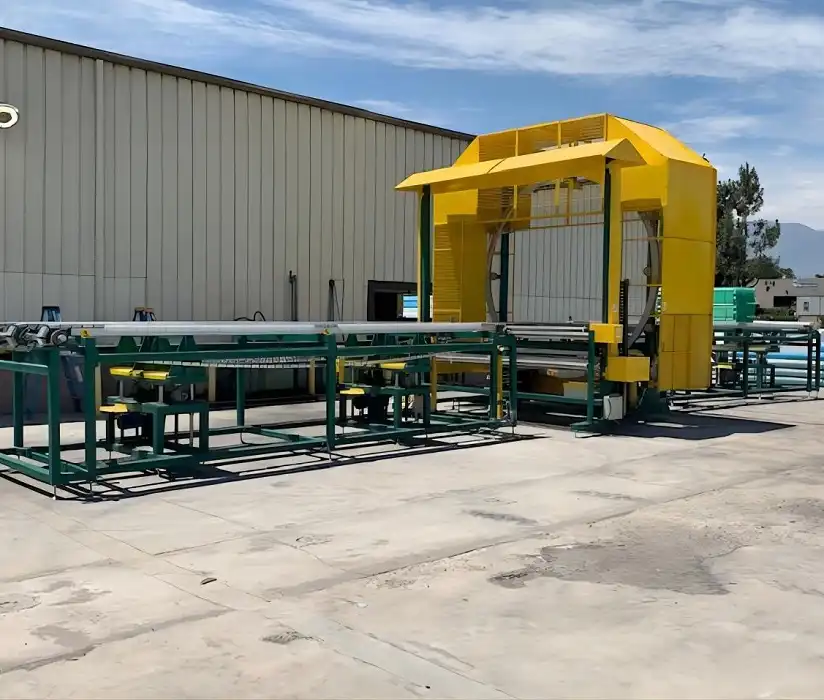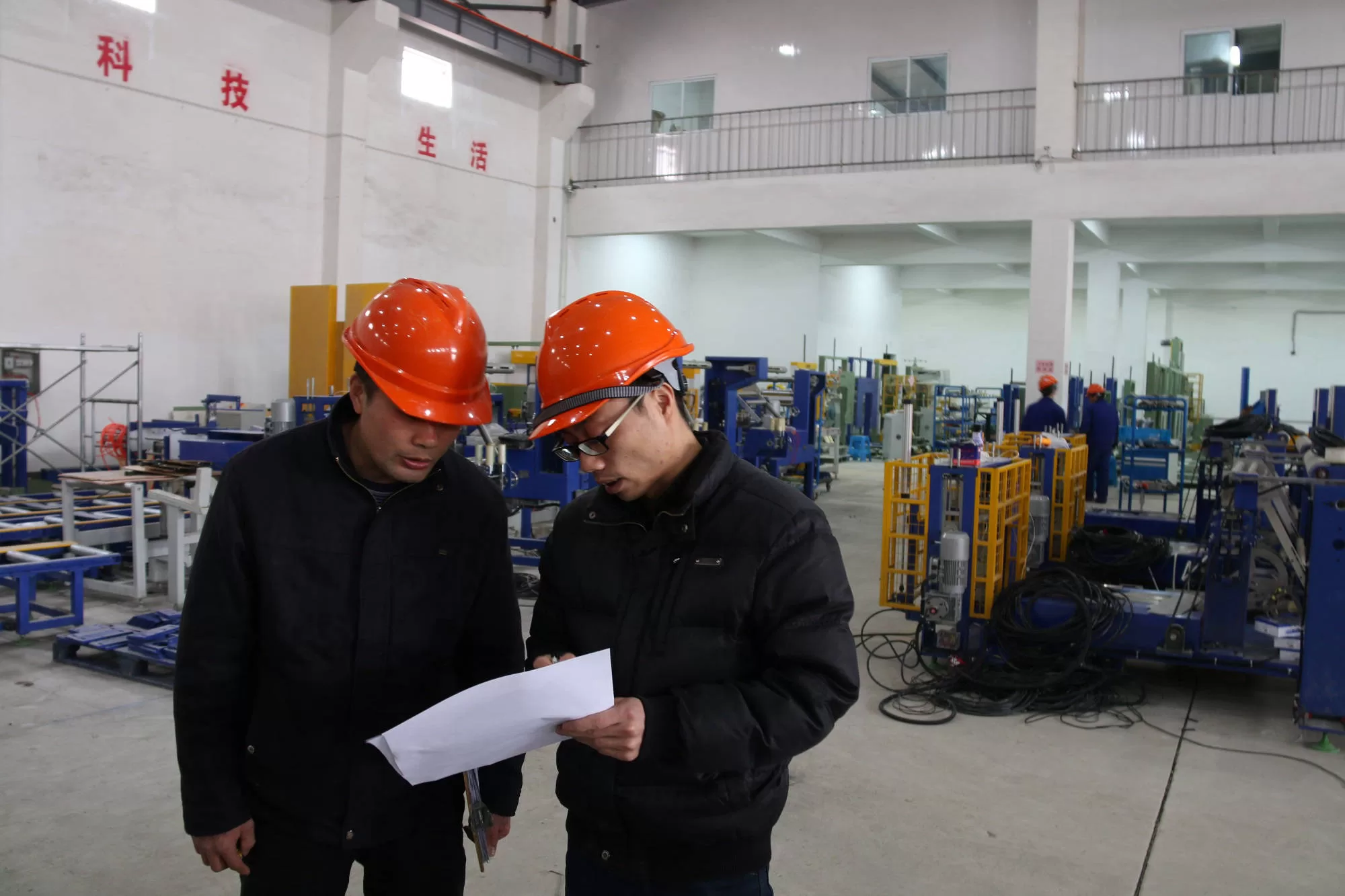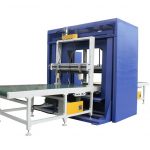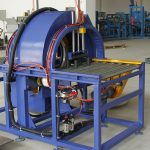Engaging Suppliers for Orbital Wrapping Machine for Fragile Goods
- Engaging Suppliers for Orbital Wrapping Machine for Fragile Goods
- Introduction
- Understanding Orbital Wrapping Machines
- The Importance of Engaging the Right Supplier
- Why Orbital Wrapping Machines Are Ideal for Fragile Goods
- Key Factors to Consider When Choosing a Supplier
- Understanding Film Selection for Fragile Goods
- Supplier Certifications and Standards Compliance
- Training and Technical Support
- Comparing Local vs. International Suppliers
- Evaluating Supplier Reviews and Testimonials
- Importance of Site Visits and Demonstrations
- Contract Negotiation Tips for Engaging Suppliers
- Considering Environmental and Sustainability Factors
- Conclusion: Maximizing Your Investment with the Right Supplier

Introduction
When it comes to packaging fragile goods, engaging with the right supplier for an orbital wrapping machine can make a significant difference in product safety, operational efficiency, and cost savings. Choosing an orbital wrapping machine that aligns with your unique needs is not just a technical decision but a strategic one. In this article, we’ll delve into the key aspects of finding the right supplier, the role of orbital wrapping machines in handling delicate items, and the factors to consider to ensure your investment pays off in the long run.
Understanding Orbital Wrapping Machines
Orbital wrapping machines are designed to wrap products, especially elongated or irregularly shaped items, in protective film by rotating the product around a horizontal axis. These machines are particularly beneficial for industries dealing with fragile goods—from glassware and ceramics to electronics and delicate mechanical components.
What sets an orbital wrapper apart is its ability to secure items without exerting excessive force, making it ideal for fragile goods that cannot withstand the pressure of traditional packaging methods. This feature reduces the risk of breakage, minimizes the need for manual handling, and ensures that your products are well-protected during transportation or storage.
The Importance of Engaging the Right Supplier
Not all orbital wrapping machines are created equal, and the supplier you choose plays a critical role in your operation’s success. The right supplier offers more than just equipment; they provide expertise, support, and customization options that can be vital for businesses dealing with fragile goods. When engaging suppliers, consider their experience, reputation, and ability to meet your specific packaging requirements.
A reliable supplier will ensure that their machines are tailored to your products, offering advice on film types, wrapping tension, and speed settings to avoid damaging fragile items. Additionally, a reputable supplier will offer ongoing maintenance support and training, ensuring that your operation continues to run smoothly long after the machine is installed.
Why Orbital Wrapping Machines Are Ideal for Fragile Goods
Fragile goods require careful handling to avoid damage during transit or storage. Orbital wrapping machines are a preferred choice for fragile products due to their gentle wrapping process and the added layer of protection they provide.
- Even Pressure Distribution: The wrapping process of an orbital machine distributes pressure evenly around the product, ensuring that no single area is overstressed.
- Customizable Settings: You can fine-tune wrapping speed and film tension based on the fragility of the goods, which minimizes the risk of damage.
- Secure Packaging: Orbital wrappers ensure that items are tightly but safely secured, reducing the risk of shifting or collisions during transportation.
Key Factors to Consider When Choosing a Supplier
When it comes to engaging a supplier for an orbital wrapping machine, especially for fragile goods, several factors come into play:
- Industry Experience: Suppliers with experience in your specific industry will be more familiar with the challenges associated with fragile goods and can offer tailored solutions. Ask potential suppliers about their past projects and customer case studies to ensure they have the expertise needed.
- Customization Options: Not all fragile goods are the same. You may need a machine with special adjustments or configurations, such as varying film thicknesses, wrapping angles, or speed controls. A supplier that offers customization can help you avoid over-purchasing features that won’t benefit your specific packaging needs.
- After-Sales Support: A crucial aspect of engaging a supplier is understanding their after-sales service. Maintenance, troubleshooting, and operator training are essential for keeping your machine running optimally. Always inquire about the level of post-purchase support the supplier provides.
- Budget Alignment: Suppliers offer a range of machines, from entry-level to advanced models with full automation and IoT integration. Define your budget clearly and ensure that the supplier can provide an effective solution without exceeding it. Suppliers who understand your cost constraints can guide you towards an affordable, yet high-performing machine.
- Technology and Innovation: The packaging industry is rapidly evolving with technological advancements. Leading suppliers often integrate cutting-edge technology into their machines, such as automated diagnostics, remote monitoring, and IoT-enabled features. When engaging with a supplier, assess how well they stay ahead of the curve in terms of innovation. A machine with modern features could improve both efficiency and product safety for your fragile goods.
Understanding Film Selection for Fragile Goods
Another key consideration when engaging a supplier is the type of film used in the wrapping process. The film must offer both protection and flexibility to avoid damage to fragile items. When evaluating suppliers, ensure they provide film recommendations based on the nature of your products.
- Stretch Film vs. Shrink Film: While stretch film is commonly used for wrapping, fragile items may require shrink film to provide a tighter fit. However, the heat application required for shrink film must be carefully managed to avoid damaging delicate products.
- Film Thickness: Thicker films can provide extra protection, but they may also exert more pressure on the product. A good supplier will advise you on the correct film thickness based on the fragility of your goods.
- Film Type and Composition: Films come in a variety of compositions, including polyethylene (PE), polypropylene (PP), and polyvinyl chloride (PVC). Each has different properties and protection levels. Engage suppliers who can help you choose the right material to ensure that your fragile goods are well-protected without compromising their integrity.
Supplier Certifications and Standards Compliance
Before engaging a supplier, it’s essential to ensure that they adhere to industry standards and certifications, especially when dealing with fragile goods. Look for suppliers who comply with ISO standards, as well as any sector-specific requirements. This guarantees that the machine you’re purchasing is built to high-quality specifications and that the supplier operates under best practices.

Get Your Best Solution !
Training and Technical Support
Even the best orbital wrapping machine can underperform if not used correctly. Supplier-provided training programs are critical to ensuring that your team knows how to operate the machine efficiently and safely. When engaging a supplier, ask about the availability of training programs, whether they offer on-site support, and if they provide comprehensive user manuals.
Equally important is ongoing technical support. Fragile goods often demand special handling, and any issues with the wrapping process could lead to damaged goods. A supplier with responsive technical support can save you from costly downtime and product loss.
Comparing Local vs. International Suppliers
When choosing a supplier for an orbital wrapping machine, a significant consideration is whether to engage with a local or international supplier. Both have their benefits and challenges, particularly when dealing with machinery for fragile goods. Here’s a breakdown:
- Local Suppliers:
- Faster Delivery: Local suppliers generally have shorter lead times, which can be crucial if you need the machine promptly.
- Easier Communication: Language barriers and time zone differences are less of a concern when dealing with a local supplier. It also becomes easier to organize on-site visits for maintenance and training.
- Quicker Support: In case of technical issues, local suppliers can often provide faster support, minimizing downtime and reducing the risk of fragile goods getting damaged due to delayed wrapping.
- International Suppliers:
- More Options: By engaging international suppliers, you open up a broader range of options. International suppliers, especially those in regions like Europe or Asia, may have more advanced machinery or more competitive pricing.
- Specialized Expertise: In some cases, international suppliers may have industry-leading technology or experience in specific types of fragile goods packaging. For example, a European supplier might specialize in wrapping solutions for glass and ceramics, offering features not available from local options.
- Potentially Higher Shipping Costs: However, you’ll need to factor in longer shipping times, higher transportation costs, and possibly more complex import procedures when dealing with overseas suppliers.
Evaluating Supplier Reviews and Testimonials
Once you’ve shortlisted suppliers, it’s important to assess their track record. Reviews, testimonials, and case studies from other customers provide valuable insights into the supplier’s reliability, machine quality, and customer service.
- Customer Testimonials: Look for specific feedback from businesses in similar industries, particularly those that deal with fragile goods. Positive testimonials that highlight successful wrapping processes, durable equipment, and responsive customer service are good indicators that the supplier can meet your needs.
- Case Studies: Many reputable suppliers provide case studies that demonstrate how their machines have solved specific packaging challenges for clients. This can offer real-world proof of the machine’s capabilities and help you envision how it could be implemented in your operation.
- Online Reviews: Check third-party platforms where customers can leave unfiltered reviews. These sources can be more reliable than testimonials featured directly on a supplier’s website, as they are less likely to be curated.
- References: Don’t hesitate to ask potential suppliers for references from previous clients. This allows you to directly speak with other businesses about their experiences with the supplier, giving you deeper insights into how responsive and effective they are in the long term.
Importance of Site Visits and Demonstrations
Before making a final decision, a site visit or machine demonstration is highly recommended. This gives you a hands-on look at how the orbital wrapping machine works and whether it’s truly suited for your fragile goods.
- Machine Performance Evaluation: Witnessing the machine in action helps you evaluate its performance, speed, and ease of use. You can test how it handles products with similar fragility to those in your operation, ensuring the machine will meet your requirements without causing damage.
- Customization Options: During a site visit or demonstration, suppliers can showcase the machine’s customization capabilities. You can assess whether it can be adjusted to different packaging sizes or whether it can accommodate the specific materials used in your fragile goods packaging.
- Build Quality and Durability: Seeing the machine up close allows you to assess its build quality. Is it constructed from durable materials that will stand up to long-term use, or does it appear flimsy? Since you’ll be relying on this machine for packaging fragile goods, it’s essential that the equipment is robust enough to avoid failure under stress.
Contract Negotiation Tips for Engaging Suppliers
Once you’ve found a supplier that meets your needs, the next step is to negotiate the contract. When dealing with orbital wrapping machines for fragile goods, here are key points to cover in negotiations:
- Warranty and Maintenance Terms: Ensure the contract includes clear warranty terms and a detailed maintenance schedule. Orbital wrapping machines for fragile goods are a long-term investment, and you need assurances that the supplier will provide regular servicing and parts replacement when needed.
- Training Programs: In the contract, confirm the availability of operator training programs. Proper training can be critical in preventing damage to fragile goods, as incorrect operation of the machine could lead to wrapping errors and product breakage.
- Spare Parts and Replacement Times: Discuss how quickly spare parts can be delivered in case of a breakdown. Particularly if you are dealing with international suppliers, long delays in receiving parts could disrupt your packaging process and increase the risk of damaged goods.
- Installation and Setup: Make sure the supplier includes installation and setup in the contract. Installing an orbital wrapping machine for fragile goods can be complex, and it’s best to have an experienced team on hand to ensure everything runs smoothly from day one.
- Service Level Agreements (SLA): Negotiate SLAs that outline how quickly the supplier must respond to service requests. For fragile goods, quick repairs are essential, as any delay could compromise product integrity.
Considering Environmental and Sustainability Factors
Another key factor to consider when engaging a supplier for an orbital wrapping machine is the environmental impact of the wrapping materials and the machine itself.
- Eco-Friendly Film Options: Some suppliers offer biodegradable or recyclable films that help reduce the environmental impact of packaging. If sustainability is a core value for your business, ask suppliers about their eco-friendly film options and whether their machines can accommodate these materials.
- Energy Efficiency: Evaluate the machine’s energy consumption. An energy-efficient machine not only helps reduce your operational costs but also contributes to your sustainability goals. Some modern machines come with energy-saving features such as automatic shut-off when not in use.
- Waste Reduction: Choose a supplier whose machines are designed to minimize film waste. Orbital wrapping machines that optimize the use of film, ensuring it wraps tightly but without excess, help reduce the amount of material used in each package, which is especially important when wrapping fragile goods.
Conclusion: Maximizing Your Investment with the Right Supplier
Engaging a supplier for an orbital wrapping machine for fragile goods is a significant decision that impacts both the safety of your products and the efficiency of your operations. By carefully evaluating suppliers based on their industry experience, machine customization options, after-sales support, and commitment to sustainability, you can ensure that you select a partner who meets your specific packaging needs.

Get Your Best Solution !









